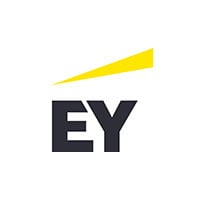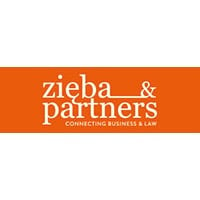

Legal and security director – Czech Republic and Slovakia | Coca-Cola HBC Česko a Slovensko




Lukáš Zapletal
Legal and security director – Czech Republic and Slovakia | Coca-Cola HBC Česko a Slovensko
Legal director and executive board member | Coca-Cola Bottling Investments Group
Legal lead and board member, Bottling Investments Group | The Coca-Cola Company
Legal lead and board member, Bottling Investments Group | The Coca-Cola Company
In 2018 Coca-Cola HBC Česko a Slovensko stepped into a totally new business (in the Czech Republic and Slovakia) – the distribution of alcohol. Cooperation started with Gruppo Campari, followed by Edrington Group, and our legal department was responsible not only for distribution contracts but for the whole legal and security side of this new premium spirit business, including all permits, templates, policies, products protection and intensive trainings of respective commercial colleagues.
Very important for our company is the recent acquisition of Toma plant, top quality water source/production, from Pepsi (which had been forced to sell it due to structural remedies imposed by local competition authority). The legal department has played a significant role i.e. in competition law and the M&A area.
I personally was also very pleased by my summer assignment in Atlanta (The Coca-Cola Company HQ) where I had a unique opportunity to directly collaborate with global legal leadership team and share best practices from the bottler’s point of view.
There was no legal department before I joined in 2011 so my task was to completely set up a legal and compliance function. I dare to say the legal department is now considered as a strong business partner and diligent compliance guardian. I prefer to let the others to comment how they see the contribution of our legal department, most objective way being annual internal client satisfaction surveys. More than 6,300 colleagues across 28 Coca-Cola HBC states (300 in the Czech and Slovak business unit) rated local legal departments based on their proactivity, business understanding, cross-functional cooperation, approachability, legal innovations, timeliness, clarity of answers etc.
It is truly amazing to see that in all 28 states legal departments are considered as very valuable business contributors. Knowing the great work of our foreign
Colleagues-lawyers, we as a Czech and Slovak legal team feel even more honored for reaching the highest score in whole Coca-Cola HBC (for the third time in last four years). We are extremely happy with this feedback from our internal clients since we really do appreciate our fruitful, effective and respectful cooperation.
The overarching challenge can be described as “more with less”. Legal departments are being pushed to accommodate an increasing scope of requests/services but to manage them with less resources.
As for particular challenges, there are plenty of them now – let’s start with the increasing scope/intensity of regulations (e.g. data protection or trade law limitations), this risk area being accompanied with unpredictability of related penalties. Further risks I see is that business disruptions are becoming the norm therefore it is more difficult to anticipate related legal issues. Bearing in mind recent penalties in the area of data protection, I am sure that the importance of cybersecurity threats is on the rise as well.
A special type of challenge is a continuously developing position of general counsel, moving from a primarily legal expert role to a complex position of business leader, covering usually areas such as ethics and compliance, risk management or crisis resolutions.
I believe it is important to realise that deep knowledge of law is crucial pre-requisite of success but it is not guarantee of success. The position of in-house lawyers requires significant focus on other areas as well, especially on business partnership and people leadership. Should you be interested “purely” in analysing the law, private practice could be a better fitting option, but should you like a broader context and more diversified (also non-legal) portfolio of activities/duties, the agenda of general counsel should suit you more.
From my perspective, one of the biggest advantages of in-house job is very intensive collaboration with colleagues across all departments. As an internal lawyer, you are expected to work with calculated risk and to find sustainable solutions supporting the business, and not to provide long theoretical memos. In the position of general counsel you are part of the senior leadership team and have a direct impact i.e. on the strategy, talent development and performance of the company. On the other hand, compared to private practice, as an in-house lawyer you have a very limited chance that your family name will be one day incorporated into company name!
FOCUS ON… Creativity vs standardisation
There are two very popular types of words which are frequently being used in companies these days – on one side, you can hear a lot about empowerment, creativity, out-of-box thinking and customised solutions, on the other hand, you can see a huge focus of companies on standardisation and automatisation. Both streams are very valid and useful! But when you hear these words in one sentence or see them written next to each other on the same page, you can literary feel that they are by default contradictive. However, since both these streams can have really big benefits, the question is how to utilise the best from both…
And I believe the reply is pretty simple – you cannot just let them “play” on the same field but you have to split them to two “playgrounds” – for more simple, repetitive agenda, standardisation is clearly the name of the game, with increasing level of sophisticated automatisation saving a lot of time of lawyers
who can then be much more focused on more complex and value adding matters. Standardisation and automatisation lead not only to speeding things up but also to consistency (e.g. this is great playground for chatbots), an aspect so much needed especially in companies with an international or global reach. And a creative lawyer who has time and whit to find non-standard solutions when needed, is exactly what a business needs and appreciates so much!